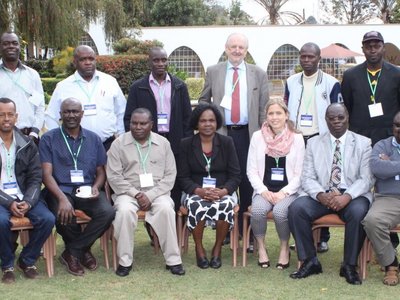

The project shows a good progress; most of the proposed activities have already been implemented. One of the major topics was the review of the Master Curricula in Fisheries and Aquatic Sciences at Makerere University (MAK) and Eldoret University (UoE), which was already done within the first project year. At that time a modular system was developed for MAK and UoE, where students are also taken to different stakeholders (e.g. private fish farms, national research centers, etc.) to experience practical training. Prior to this step Memoranda of Understanding (MoUs) have been signed with important stakeholders, which again will strengthen the local network within the aquaculture and fisheries sector between private and public institutions.
In Ethiopia, in the district of Ijaji, three farmers have been selected for establishing the so-called “aquaculture model villages”. The sense of these villages is, to show that “feeding fish” for the local use is a successful way for food security in rural areas. The fascinating part of the “model villages” is, that these three farmers are located in a real non-fish-eating area, as any bigger lakes are far away.
In terms of gender equality, special training workshops on fish production were offered for women, who took the opportunity to get a detailed insight. Trainings were given on pond construction and management, fish farming and fish preparation. Women were highly interested in the technologies of fish farming, due to their responsibility in household food and nutrition security.
At the moment 5 PhD and 8 MSc students are linked to the STRECAFISH project. They are doing their research on national matters in aquaculture and fisheries, which are of importance in the respective region. They all will finish with the end of the STRECAFISH-project (2018) and therefore will also contribute to strengthening the existing network.
The STRECAFISH-team starts highly motivated into the last year and is looking forward to finalising a successful APPEAR project.
